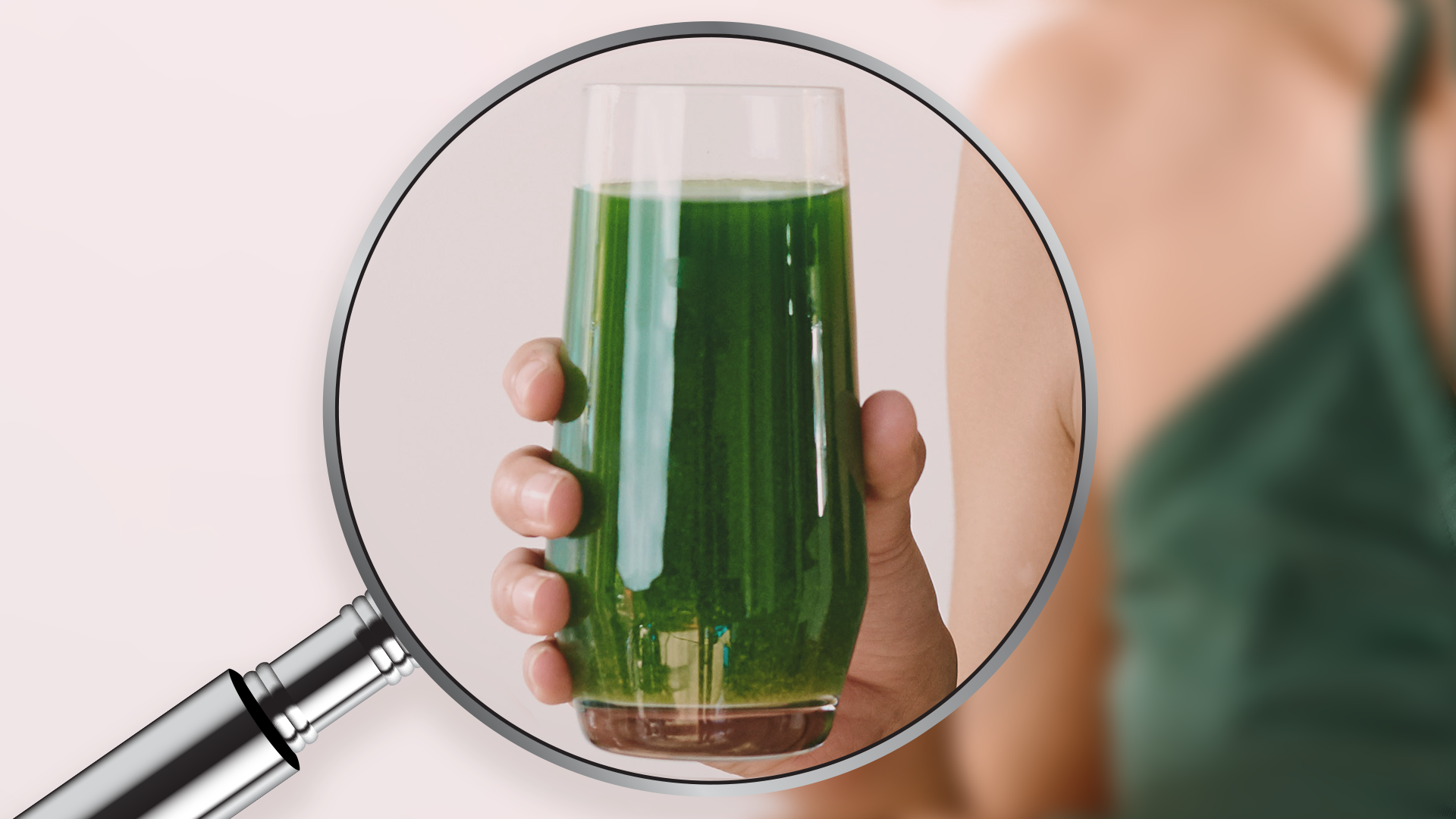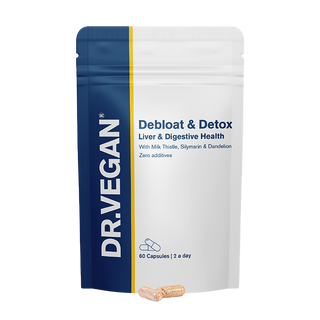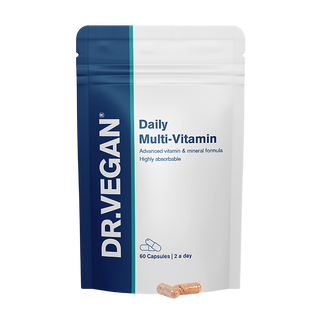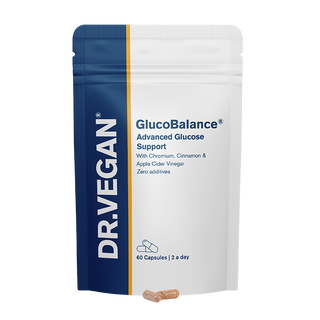Do meal replacement shakes work?

Supplement powders and meal replacement shakes have become a popular fad, with consumers paying more than £50 a month (and often double that!) for a bag of powder claiming to be complete food, provide comprehensive nutritional support, and even support weight loss. Meal replacement shakes are Ultra Processed Foods (UPFs) and they're coming under greater scrutiny, and rightly so. The World Health Organisation (WHO) recently recommended people should avoid using sweeteners for weight control, which are at the heart of meal replacement shakes, because they don't have any health benefit and they increase risks of long term health issues, including type 2 diabetes. So, are these shakes just a fad? Do they actually work? What are the risks and how do they compare to high-quality supplements? Our expert nutritionists explain.
What are meal replacement shakes?
Powder supplements and meal replacement shakes are processed powders that, when mixed with water or other liquids, create a drink which is intended to replace a meal. They are often calorie controlled, and have protein, vitamins and minerals added. If you're unsure what your diet is providing, create your free Diet Profile to see the nutrients you're gaining in your diet and what you may be missing.
What's your diet missing? Create your free Diet Profile.
Powder supplements are often popular among people who want to lose weight and tone up, and by those who need to eat on the go. The elderly are often given meal replacements if they have problems swallowing or eating.
These meal replacement shakes are generally made from a base of protein, normally whey protein or plant-based protein, to which manufacturers add nutrients which are normally standard vitamins and minerals. They also add a flavour to make it palatable - many vitamins and minerals in their powder supplemental form actually don’t taste very nice, so they very often need a strong flavour to make it pleasant.
Can you rely only on meal replacement shakes?
There are some positives to powder supplements and meal replacement shakes, but they're far outweighed by the risks and what they don't provide.

One positive is they're convenient. Meal replacements can be convenient and helpful in some situations, providing a solution to those 'on the go' when cooking even a basic meal or alternative food might not be an option.
Powder supplements can also be an easy option for people with dietary requirements, such as travellers with allergies or specific dietary requirements, especially when in a country where the language is unfamiliar and you can't easily read food labels.
Risks of meal replacements
While there are some positives, it's important to be aware of the downsides and risks of meal replacement shakes and powder supplements.
Risks of insulin resistance and type 2 diabetes
Meal replacements are generally sweeter than normal food because they include sweeteners. Even if they say they don't include artificial sweeteners, check the ingredients because they very often include plant-based sweeteners that are 350x sweeter than sugar! Always #CheckTheLabel.
Learn more about the World Health Organisation's warning against the use of sweeteners in all food and drink.
When tasting something sweet, the body automatically releases the hormone 'insulin' which prepares your body for the sugar it's about to digest. When that sugar doesn’t come (because you're consuming sweeteners in powder shakes), the body ends up with too little blood sugars due to the over production of insulin. This leads to cravings and hunger and can cause pre-diabetes, also known as 'insulin resistance'.
Insulin resistance is caused by too high levels of insulin being produced over a long period of time, leading your body to become resistant to insulin and unable to use your blood glucose for energy. This leads to higher levels of blood glucose in your body, causing your pancreas to create more insulin and ultimately leading to type 2 diabetes. This is why the World Health Organisation recommend avoiding foods with sweeteners, such as meal replacement shakes. Also remember that constantly consuming something that triggers a sweet tooth is the last thing you need if you are trying to lose weight. Learn more about the symptoms of high and low blood sugar and 10 symptoms of diabetes to look out for.
Missing nutrients
As idealistic as it may sound, meal replacements should not be relied upon as an alternative to food, especially in the long term. There are many nutrients in food that are not classified as ‘vitamins’ or ‘minerals’, and therefore not included in meal replacements. These nutritional compounds include phytoestrogens, fatty acids, flavonoids, anthocyanadins, carotenoids and many other compounds which are needed for our optimal health, but are all missing from meal replacements. When only meal replacements are consumed, your body will lack all these vital health promoting nutritional compounds.

Decreased chewing
Chewing food has important biological functions, including stimulating the production of digestive enzymes and telling your body there is food coming.
Digestive enzymes ensure that food substances and nutrients are broken down properly for optimal gut health - our gut is our 'second-brain', connected to our brain by the 'gut-brain axis', so our diet and our gut are the start point for all health goals. Chewing is also important for the release of stomach acid. If your stomach acid is too low, you can find yourself with indigestion and other gut issues, including bloating. The latest customer survey insights on gut health shows 70% of people suffer from bloating.
Debloat & Detox

If you have gut health issues, it's advised to avoid drinking liquids at meal times, and to avoid liquid meals such as shakes, soups and meal replacements so you don't dilute your stomach acid further. Chewing food also helps you to feel full, so if weight loss is your goal, make sure you eat food (and chew as much as you can) and steer clear of powder supplements and meal replacement shakes.
Where's the fibre?
Although some meal replacements and powder supplements add fibre, the majority do not, or they do not add enough fibre. A healthy diet contains lots of fibre, both soluble and insoluble, and this is necessary for the health of your gut and to aid the body's natural detoxification process. You may also enjoy reading 'Is a Mediterranean diet actually healthy?'.
A homemade smoothie, for example, contains the fibre from the fruit or vegetables added. Unfortunately, this freshness is very hard to add to a meal replacement or powder supplement because it needs a long shelf life. It is just as important to look at what you are not eating as it is to look at what you are eating.

Overly processed
Unfortunately, all powder supplements and meal replacements are very processed. They have long shelf lives and generally contain artificial ingredients to add flavour and create long shelf lives to be shipped across the world. Learn more in 'Ingredients to avoid in supplements'.
Where possible, it is always best to consume food in its unprocessed form, and your food should be as close to its natural state as safely possible to gain the full benefit. And of course, always #CheckTheLabel - learn more in 'Check your labels for these ingredients'.
May cause weight gain
When mixed into a drink, powder supplements or meal replacements can pass through the stomach more quickly, triggering feelings of hunger before they would appear with a normal meal. Chewing plays a big role in helping you to feel full, so the lack of chewing when relying on meal replacements may lead to the intake of additional calories, triggering weight gain.
Daily Multi-Vitamin

Is there too much protein?
We all need enough protein, however too much protein can be problematic. Too much protein puts strain on the kidneys and can trigger many other issues. Although not everyone will consume too much protein, you are more likely to consume too much with meal replacement shakes. You may also enjoy 'Best protein on a plant-based diet'.
Comparing meal replacement shakes and a daily multivitamin
It's always important to #CheckTheLabel and even more so before buying any powder supplement or meal replacement.
We compared the UK's #1 and #2 best-selling powder supplement and meal replacement shakes to the DR.VEGAN® Daily Multi-Vitamin, and found the powder supplements contained 30% fewer nutrients, at least 65% lower levels of nutrients, they contained additives and they were up to 5x more expensive per daily serving.
Discover our Daily Multi-Vitamin
Given the differences in nutrients provided, not to mention the cost, it begs the question why would you choose a meal replacement? A high quality daily multi-vitamin covers all your nutritional bases and is the sensible addition to any diet. Your food provides fibre and phytonutrients, and your daily multivitamin will top up key nutrients to ensure you avoid any deficiencies. With a high quality daily multi-vitamin you can enjoy actual food, and a variety of foods, without worrying if you're gaining the essential nutrients you need - something you can't do with a powder supplement or meal replacement.
Better for weight loss
Eating healthy food and combining it with a multi-nutrient formula is more beneficial for weight loss and general health in the long run. If you need to lose weight, then your way of eating needs to change in the long term. If you use meal replacements for weight loss, you may lose weight, but as soon as you start eating your old diet again, the weight will return. Meal replacements are not a long-term solution and should be avoided in the short term too.
More nutrition
The DR.VEGAN Daily Multi-Vitamin is a multi-nutrient supplement that contains higher quality nutrient forms than standard multivitamins, and a higher level of nutrients than meal replacements and powder supplements. The DR.VEGAN Daily Multi-Vitamin is also very low in calories and can be safely combined with a healthy diet for overall health, wellbeing, and if desired, weight loss.
Compared to other high street multivitamins and meal replacements, the DR.VEGAN® Daily Multi-Vitamin also has a preferential nutrient profile, with 24 key nutrients in their most absorbable and bio-available form, and makes an excellent addition to every diet, including a plant-based diet.
View our range of plant-based vitamins and supplements.
This article contains data from UK surveys conducted by DR.VEGAN®. All survey findings reflect our own research efforts and have not been influenced or verified by any external organisations or third-party entities.
Want to hear more from our nutritionists? Sign up to our free newsletter for expert tips and advice:





















